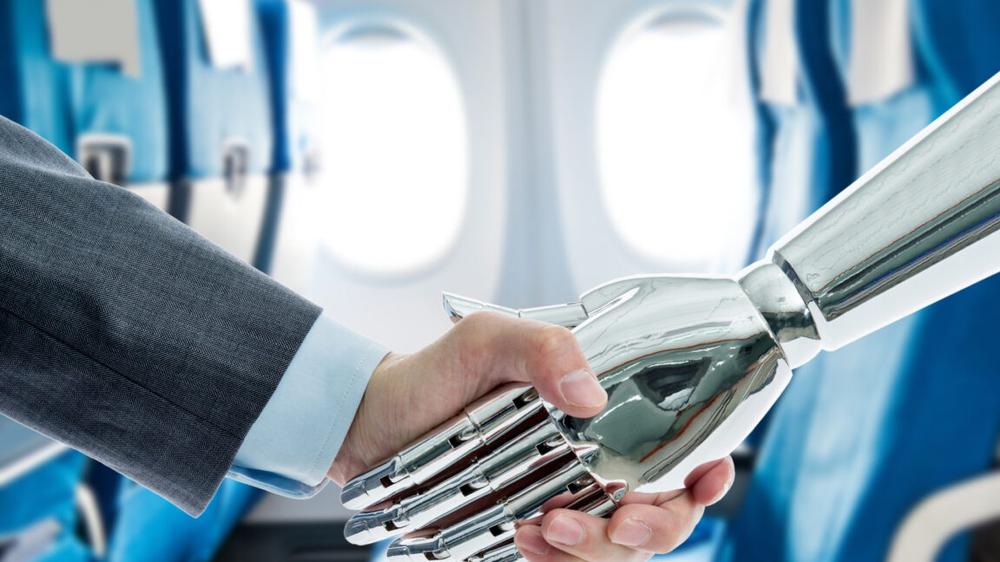Delta has become the first airline to announce that it is using AI to boost profits by personalizing pricing through a pilot program that for months has caused customers to pay different prices for the same flights based on their data profile.
Critics have warned that this use of AI goes beyond airline practices that charge people who book flights ahead less than people who book flights at the last minute—and could ultimately mean the end of cheap flights across the board if other airlines follow.
On an earnings call last week, Delta Air Lines President Glen William Hauenstein confirmed that seats on about 3 percent of domestic flights were sold using the AI pricing system over the past six months. By the end of the year, Delta's goal is to boost that to 20 percent of tickets.
Consumer Watchdog has warned that while so-called individualized pricing could theoretically be used to lower prices for Delta customers, without public reporting on how the pricing works, it's impossible to know if it's fair or possibly violating federal laws that prohibit charging different rates based on protected classes, like sex or ethnicity.
Most often when it's used, "the best deals were offered to the wealthiest customers—with the worst deals given to the poorest people, who are least likely to have other options," Fortune reported.
Last November, Hauenstein told investors that Delta's goal is to eventually get rid of static pricing entirely, Fortune reported, likely motivated even more today based on reportedly "amazingly favorable" results the airline has seen so far. Other airlines may follow its lead, as Delta made it clear to investors that even though the feature is still in a "heavy testing phase," it's working to propel revenue.
"We like what we see," Hauenstein told investors on the earnings call. "We like it a lot."
George Slover, general counsel for a digital rights group called the Center for Democracy and Technology, warned last fall that tailoring prices based on a customer's "identity, preferences, and situation" could lead airlines to collude to spike prices. His post suggested that Delta may be motivated to leave customers in the dark on their AI models while picking their pockets. So far, Delta has not confirmed when it may release public records showing the pricing variance occurring from its pilot program.
"The very fact that Delta is saying that the early results of this intrusive pricing scheme 'show amazingly favorable results' says it all," Slover said in a statement provided to Ars. "They are increasing their profits, and those profits are coming from the consumers they are taking advantage of."
Delta has partnered with Fetcherr for the pilot. Fetcherr an Israeli company that "also counts Azul, WestJet, Virgin Atlantic, and VivaAerobus as clients" and plans to expand into other travel industries once its tech becomes established in the airline industry, Fortune noted. Slover expects that for companies wooed with tech like Fetcherr's, the proposition will be "irresistible."
Delta declined Ars' request to comment, but a spokesperson told Fortune that the airline "has zero tolerance for discrimination. Our fares are publicly filed and based solely on trip-related factors like advance purchase and cabin class, and we maintain strict safeguards to ensure compliance with federal law."
Senator vows to block Delta’s AI pricing
According to Slover, companies like Delta could vary prices using data like a customer's web-browsing activity, prior purchases, searches for products, or their "income, assets, debts, and financial condition and history." Looking at past purchases could reveal how much they're willing to spend on comparable items, while social data could indicate if, for example, a flight is urgently needed. Any of these data points could "indicate the consumer is more susceptible to sales-pitch puffery or pressure," Slover suggested.
Although Delta's AI pricing could increase competition in the airline industry, Slover expects that companies using such pricing schemes are "all too likely" to instead be incentivized "to skew in the direction of higher prices," precisely because of the AI pricing's lack of transparency.
"Informed consumer choice is the engine that drives competition; because consumers won’t be as informed, and thus will have little or no agency in the supposed competitive benefits, they are more apt to be taken advantage of than to benefit," Slover said.
Delta could face backlash as it rolls out individualized pricing over the next few years, Slover suggested, as some customers are "apt to react viscerally" to what privacy advocates term "surveillance pricing."
The company could also get pushback from officials, with the Federal Trade Commission already studying how individualized pricing like Delta's pilot could potentially violate the FTC Act or harm consumers. That could result in new rulemaking, Solver said, or possibly even legislation "to prohibit or rein it in."
Some lawmakers are already scrutinizing pricing algorithms, Slover noted, with pricing practices of giants like Walmart and Amazon targeted in recent hearings held by the Senate Committee on Banking, Housing, and Urban Affairs.
For anyone wondering how to prevent personalized pricing that could make flights suddenly more expensive, Slover recommended using a Virtual Private Network (VPN) when shopping as a short-term solution.
Long-term, stronger privacy laws could gut such AI tools of the data needed to increase or lower prices, Slover said. Third-party intermediaries could also be used, he suggested, "restoring anonymity" to the shopping process by relying on third-party technology acting as a "purchasing agent." Ideally, those third parties would not be collecting data themselves, Slover said, recommending that nonprofits like Consumer Reports could be good candidates to offer that form of consumer protection.
At least one lawmaker, Senator Ruben Gallego (D-Ariz.) has explicitly vowed to block Delta's AI plan.
"Delta’s CEO just got caught bragging about using AI to find your pain point—meaning they’ll squeeze you for every penny," Gallego wrote on X. "This isn’t fair pricing or competitive pricing. It’s predatory pricing. I won’t let them get away with this."

 The Onion Cultural Standard: Real Housewives of Atlanta
The Onion Cultural Standard: Real Housewives of Atlanta